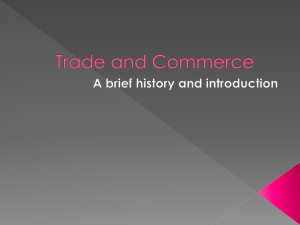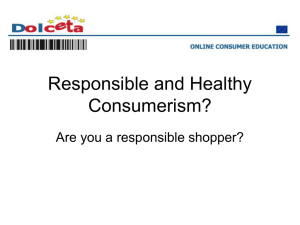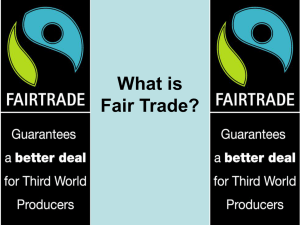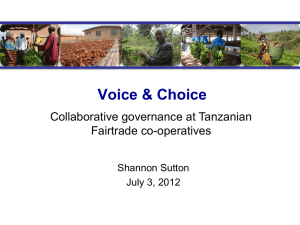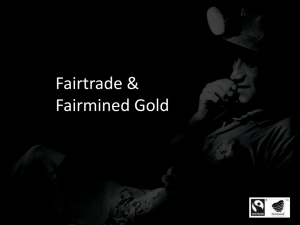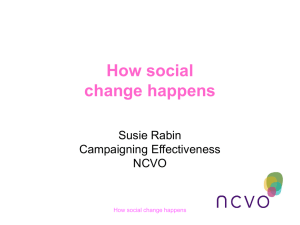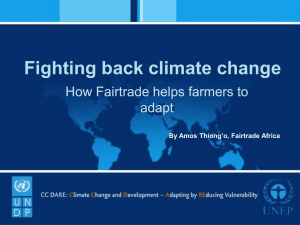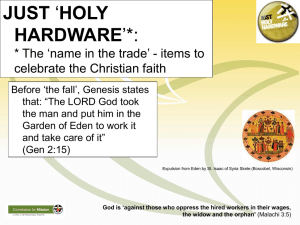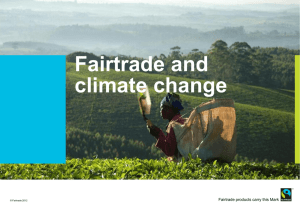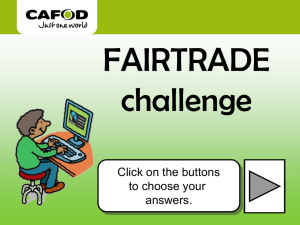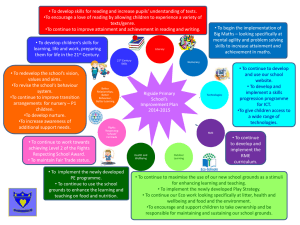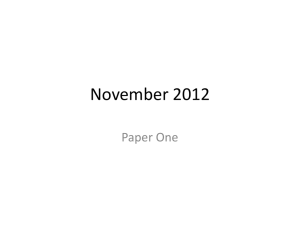Fairtrade means… - Greenaccord.org
advertisement
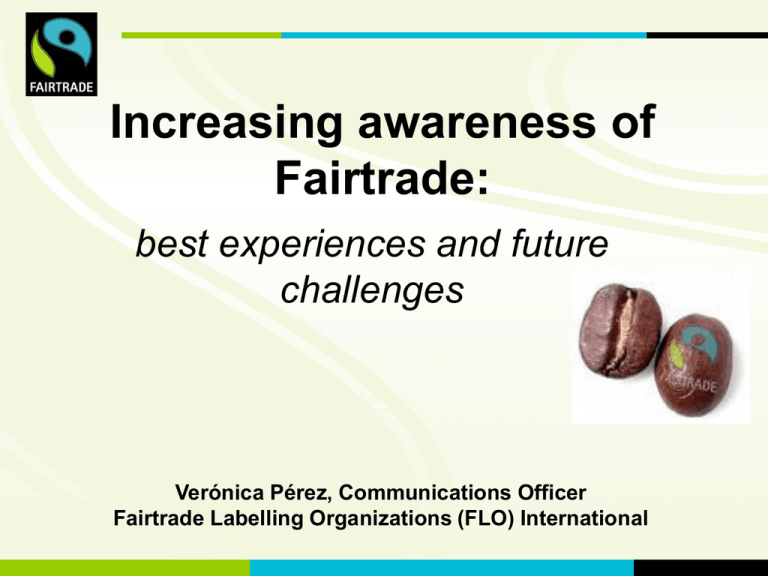
Increasing awareness of Fairtrade: best experiences and future challenges Verónica Pérez, Communications Officer Fairtrade Labelling Organizations (FLO) International How did it all start? • 1950‘s: the Fair Trade movement starts • 1987: first Fairtrade label „Max Havelaar“ is launched in the Netherlands • Other Labelling Initiatives follow across Europe and North America • 1997, Fairtrade Labelling Organizations (FLO) International is created Old Fairtrade logos 2002: Launch of the International FAIRTRADE Certification Mark Most Labelling Initiatives (LIs) are now using the International Fairtrade Certification Mark. Today: hundreds of Fairtrade products available! The FAIRTRADE Mark on a consumer product means: •Farmers receive a fair and stable price for their products •Producer groups receive a premium to invest in improving their communities and businesses •Greater respect for the environment •Small farmers have a stronger position in world markets •A closer link between shoppers and producers Fairtrade means… A fair and stable price for producers “…we can buy pens and notebooks so children can go to school. We have bought seeds and fertiliser to grow vegetables and improve our family’s diet.” Sira Souko Cotton farmer, Batimakana, Mali Fairtrade means… Extra income to invest in bringing about change for the future Farmers at Mabale Growers’ tea factory in Uganda used some of their Fairtrade premium to build a road for the local community enabling easier access to local markets. Fairtrade means… Producers are working to protect their environment Coffee farmers in one cooperative in Costa Rica are protecting the rainforest with new coffee driers that run on recycled coffee bean husks and organic material, rather than using firewood. Fairtrade means… Small farmers have a stronger position in world markets “For us small producers, we are very committed to Fairtrade. It is our means of survival here in the Dominican Republic. We see Fairtrade as being part of a big family.” José Peralta Banana Grower ASOBANU, Dominican Republic Evolution of Fairtrade Certified Producer Organizations Evolution of the number of Fairtrade Certified Producer Organizations 600 569 500 508 432 400 350 300 200 303 224 100 0 2001 2002 2003 2004 2005 2006 Fairtrade Labelling is active in 21 consumer countries Sales are booming! ... In this success story, communications has played a crucial role Main Communications Activities: • Spreading the word with media • Talking to people directly • Campaining Fair Trade Weeks An Opportunity to: 1) raise awarness among the public 2) Target the media 3) Mobilize volunteers 4) Organize Fairtrade events all over the country Fairtrade Towns Campaign Fairtrade Universities/Schools • Set up steering group • Fairtrade policy & committment • FT products at all meetings and • FT products available at catering outlets Popular Supporters Product tasting in the supermarket Fairtrade at Work Campaign www.fairtradeatwork.org.uk Downloads, case studies, arguments, video Other activities • Producer Tours • Fashion shows • Festivals, • Picnics • Fairtrade Dinners • Recipes: Make your own or find some at: www.fairtrade.org.uk/resources_recipes.htm Challenges Greater visibility and success means increasing criticism: • Within the Fair Trade movement • Within the industry • Greater media scrutiny... With consequences... ... with consequences Our Main Challenges 1) Develop impact indicators 2) Develop common, movement-wide PR tools 3) Increase cooperation and strengthen central coordination Thank you for you attention!
